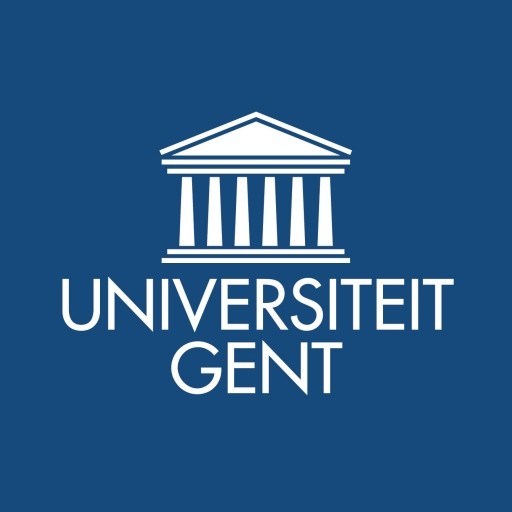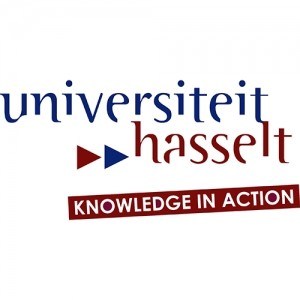Photos of university / #thefoundry_ugent
The Agro- and Environmental Nematology program at Ghent University offers a comprehensive and in-depth education in the study of plant-parasitic and free-living nematodes, their interactions with various ecosystems, and their impact on agriculture and the environment. This program is designed to equip students with a solid understanding of nematode biology, taxonomy, ecology, and management strategies, enabling them to address challenges related to nematode pests in sustainable agriculture and environmental conservation. Throughout the curriculum, students explore various topics including nematode identification techniques, soil health assessment, crop protection methods, and the role of nematodes in nutrient cycling and soil ecosystems. The program emphasizes both theoretical knowledge and practical skills, offering hands-on laboratory and fieldwork experiences to develop proficiency in nematode sampling, identification, and data analysis. Students will also gain insights into integrated pest management strategies and the application of nematology research to develop environmentally friendly solutions for controlling nematode populations. With a focus on both fundamental research and applied sciences, this program prepares graduates for careers in research institutions, agricultural consulting, environmental organizations, and industry sectors focused on sustainable agriculture and ecosystem management. Collaboration with international research projects and exposure to cutting-edge technologies ensure that students stay at the forefront of developments in nematology. Graduates of this program will be well-equipped to contribute to the advancement of nematology and to promote sustainable practices that balance agricultural productivity with environmental protection. Overall, the Agro- and Environmental Nematology program at Ghent University offers a rigorous and interdisciplinary approach to the study of nematodes, aiming to develop highly trained experts capable of tackling real-world problems related to plant health and environmental integrity.
The International Master of Science in Agro- and Environmental Nematology is a newly developed Master programme, based on the merger of the Master of Science in Nematology (PINC) and the European Master of Science in Nematology (EUMAINE). It will run from the academic year 2015-2016 onwards
This Master programme is a 2nd cycle higher education programme consisting of 120 credits, to be taken over 2 years, each consisting of 60 credits. For clarity the 4 consecutive semesters that make up these two years are indicated as 1, 2, 3 and 4.
The first semester consists of 7 compulsory general nematology courses for a total of 30 credits.
From the second semester onwards the student can choose between 4 majors, each focusing on a different field within nematology. In order to ensure a flexible degree programme, there will also be the opportunity to select courses outside of the chosen major:
- Biocontrol and Integrated Pest Management
- Bio-indicators, Biomonitoring and Ecotoxicology
- Biotechnology and Model Organisms
- International Capacity Building and Sustainability
For each chosen major, the student will be required to take a number of compulsory courses (CS) and to choose from elective courses (EC) for a minimum of 30 credits spread over semesters 2, 3 and 4. Students will also have the opportunity to do an internship to gain experience in the working in Nematology.
Another 30 credits will be chosen from any of the majors (both the compulsory and elective courses) or from any programme of Ghent University or from another university, subject to the approval of the Faculty of Sciences.
Or, instead of staying in Ghent, the students can also select an international mobility track of 30 credits in the third semester. Courses can be followed at Wageningen University (The Netherlands), Bonn University (Germany), the University of Évora (Portugal) or North-West University (South-Africa).
Finally, in the second year, students will complete a Masters dissertation of 30 credits. Students will also be able to undertake this research project in any of the following universities/institutes/companies during the 4th semester:
- Ghent University, Belgium
- Wageningen University, The Netherlands
- Bonn University, Germany
- The University of Évora, Portugal
- North-West University, Potchefstroom, South-Africa
- E-nema, Kiel, Germany
- The National Plant Protection Service, Wageningen, The Netherlands
- The Institute for Agricultural and Fisheries Research (ILVO), Belgium
- The University of Jaén, Spain
- The James Hutton Institute, Scotland, UK
- The Federal University of Pernambuco, Recife, Brazil
Requirements
- This MSc programme is open to top–level students with a University Bachelor degree (requiring a minimum of 3 years study) in Agricultural sciences, Biology, Bioscience engineering, Environmental sciences, biochemistry and biotechnology, veterinary science, biomedical sciences and applied biological sciences.
- Enrollment fee of Ghent University for academic year 2016-2017 is 890 € for EER-students and students from OESO-DAC-list (developing countries), all other students pay an enrollment fee of 5330 €
- Copies of your diploma and complete academic transcripts certified by the issuing university/notarian and afterwards legalized by the Belgian Embassy in the country where the diploma was issued. It is also possible that the legalization can be done by a recognized authority in your country: please check the website www.diplobel.be --> legalization of documents
- A curriculum vitae
- A document explaining the grading/credit system in your country: the system which expresses how your school work is evaluated can differ from country to country. To allow us to assess your application we need to understand your transcripts (report card) and the grading system that was used
- If you are a political refugee: an original letter stating that you are a political refugee
- Proof of Dutch / English proficiency, depending on the programme that you are applying for the signed consent form
- Enclose any documents that can add value to your application
- Send the application package by post to the International Admissions Desk. Since we require original documents, youcannot email or fax your application package
- TOEFL certificate (the UGent TOEFL code is 2643). For specific details about the minimum total score required:
- a minimum total score of 500 on the paper based test (PBT), or
- a minimum total score of 80 on an internet based test (IBT).
- IELTS with a minimum overall band score of 5.5.
- Proof of at least 1 year of comprehensive English-based instruction at a university or recognized equivalent.
- Proof of a successful “Intermediate Academic English” CEF: B1-level test (CEF = Common European Framework) proven by a language test at the language center of Ghent University (UCT)and provided upon the submission deadline of your application.
- Cambridge-ESOL: first certificate in English (FCE)
Scholarships
- VLIR-UOS scholarships
- Ghent University Master grants
- Belgian Technical Cooperation scholarships
- OFID Scholarship Award for International Students
The Agro- and Environmental Nematology program at Ghent University offers students a comprehensive education in the biology, ecology, and management of nematodes that affect agricultural and natural ecosystems. This program emphasizes understanding the relationships between nematodes, plants, soil health, and the wider environment. Students gain in-depth knowledge of various nematode species, including their identification, life cycles, and impact on crop production and biodiversity. The curriculum combines theoretical courses with practical laboratory work and field research, enabling students to develop skills in nematode sampling, identification, and control strategies.
This specialization prepares graduates for careers in agricultural research, pest management, environmental protection, and consultancy services. The program also emphasizes sustainable practices and integrated pest management to reduce reliance on chemical controls. Students learn about the use of biological control agents, crop rotation, and soil health management to mitigate nematode damage.
Throughout the program, students engage in research projects that often involve collaboration with industry partners, governmental agencies, and research institutes. The faculty at Ghent University is renowned for its expertise in soil sciences and integrated pest management, providing students with access to state-of-the-art laboratories and field stations.
Graduates of the Agro- and Environmental Nematology program are equipped with the analytical, research, and practical skills necessary to address current challenges related to nematode infestations in agriculture and natural landscapes. They are prepared to contribute to scientific advancements, develop innovative control solutions, and promote sustainable agricultural practices. The program also offers opportunities for specialization in areas such as molecular identification techniques, nematode ecology, or the development of bio-based pest control methods. Overall, this program aims to train highly skilled professionals capable of making significant contributions to both scientific knowledge and agricultural industry sustainability.



